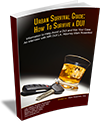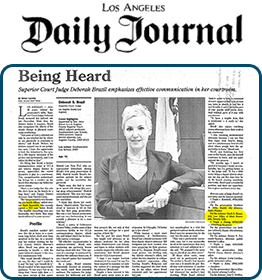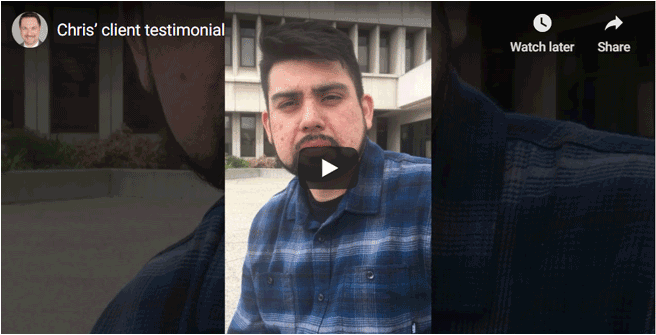The Department of Motor Vehicles is the one that’s really in charge of what happens with the license. The license can be suspended by the judge but most of the time it’s the DMV that handles those suspension issues.
The DMV Assigns a Hearing Officer to Preside over the Hearing Following a DUI Charge
The DMV assigns what’s called a Hearing Officer to review the case and take evidence. The Hearing Officer decides whether or not a license should be suspended.
This Hearing Officer is not a lawyer. They’re not a judge. They’re not an administrative judge. They have absolutely no legal training at all. But the Hearing Officer is the person who runs the hearing, decides what evidence comes in, and what evidence stays out. The Hearing Officer also decides what the evidence means and what will happen to the license.
At the Department of Motor Vehicles, the Hearing Officer is the judge, jury and executioner. He handles all aspects of the case.
In Addition to Suspending a License, the DMV Can Also Impose Conditions Individuals Must Fulfill to Restore Driving Privileges
The Department of Motor Vehicles has the power to suspend the license and if they do suspend the license, they will require somebody to do certain things to get the license back. If you’re dealing with the typical first time DUI and the DMV does suspend the license, they will put in certain requirements that someone must comply with to get the license re-issued.
Restricted Licenses Allow Individuals to Resume Driving Providing Certain Conditions Are Met
You could get it re-issued by waiting a certain period of time and get it back unrestricted or you could apply to get the license back restricted. In order to get the license re-issued restricted and get driving as soon as possible, which most people want to do, the person would have to meet certain conditions.
The conditions include attending an Alcohol Driver’s Education Program. They would need to get a special type of insurance which is called an SR-22. They would need to pay a license re-issuance fee which is typically $125.
In Los Angeles County, All Drivers Must Install an Ignition Interlock Device Prior to Having Their License Re-Issued
Those are the three things that are normally required to get a license re-issued after it has been suspended by the DMV. However, Los Angeles County in particular is what is referred to as a Pilot County for a new program that started a couple of years ago. This program requires everybody who’s convicted of a DUI in Los Angeles County court to get an Ignition Interlock Device (IID) installed in their car.
Anybody convicted of a first, second, third, fourth DUI is required to put an Ignition Interlock Device in any car that they own or operate. Even if you have a first time DUI, if you’re convicted in court, the DMV will be notified. You will have to get an IID in order to get the license re-issued and you’ll not be able to drive a car without the IID installed.
Individuals Can Face a Jail Sentence for Not Complying with the Ignition Interlock Requirement
If you ignore the requirements and drive, then you’re going to be violating both DMV rules as well as general court rules. You can be found in violation of probation and you can actually get sentenced to jail for driving without the Ignition Interlock Device installed.
If somebody was convicted in court of a DUI and the DMV suspended their license, in order to get it back they would have to pay fees, they would have to get enrolled and take an alcohol class, they’d have to have the special proof of insurance (the SR-22) and they would have to install the Ignition Interlock Device.
On a first-time DUI, that Ignition Interlock Device needs to be installed for five months.
A Driver’s Right to Request a Hearing
When somebody is arrested for driving under the influence, the officer takes their license and gives them a pink temporary license; they have 10 days to request or demand a hearing. If they don’t do that within the 10 days, then the license will automatically be suspended.
No Charge to the License Holder for the DMV Hearing
The Department of Motor Vehicles does not charge a fee for the hearing but what can be confusing with requesting or demanding a hearing within the 10-day timeframe is that the officers give you a temporary license that’s good for 30 days.
People get confused when the officer is supposed to say that you have 10 days to demand a hearing, but then they give you a piece of paper that says the license is good for 30 days.
What needs to happen within 10 days is that you need to have the hearing requested. Then after the 30 days, you need to get a new temporary license.
Different DMV Hearings Depend on Circumstances of DUI Arrest
There are different types of administrative hearings for a DUI or related to a DUI. If somebody’s under the age of 21, there’s one type of hearing. If they’re over 21, it’s a regular or what’s referred to as your 0.08 Hearing.
If someone refuses to submit to a chemical test or is unable to complete a chemical test, they can be charged with a Refusal Hearing. There are also different types of administrative hearings if someone’s a commercial driver like a bus driver or a truck driver.
To Suspend Driver’s License, DMV Must Prove Several Points When Conducting Refusal Hearing
The most common hearings, of course, are the 0.08 Hearings but we also see a lot of Refusal Hearings. In order for the Department of Motor Vehicles to prove a refusal, they need to prove the following: The officer had reasonable suspicion to believe that the person was driving under the influence; the person was lawfully arrested; the person was advised what would happen if they refuse to submit or were unable to complete a chemical test; and the person actually did refuse.
If the Department of Motor Vehicles finds that there is a refusal and that refusal is true and stands up, then they will suspend the license for one year on a first time DUI no restriction, and there is no way to get the license back early.






 Personal Attention
Personal Attention Every criminal case is unique and no attorney can guarantee the outcome of a case. The information on this site is legal advertising and for general information only. Using this site, requesting books, information, consultations or communicating with Attorney Rosenfeld through its site does not form an attorney/client relationship.
Every criminal case is unique and no attorney can guarantee the outcome of a case. The information on this site is legal advertising and for general information only. Using this site, requesting books, information, consultations or communicating with Attorney Rosenfeld through its site does not form an attorney/client relationship.








